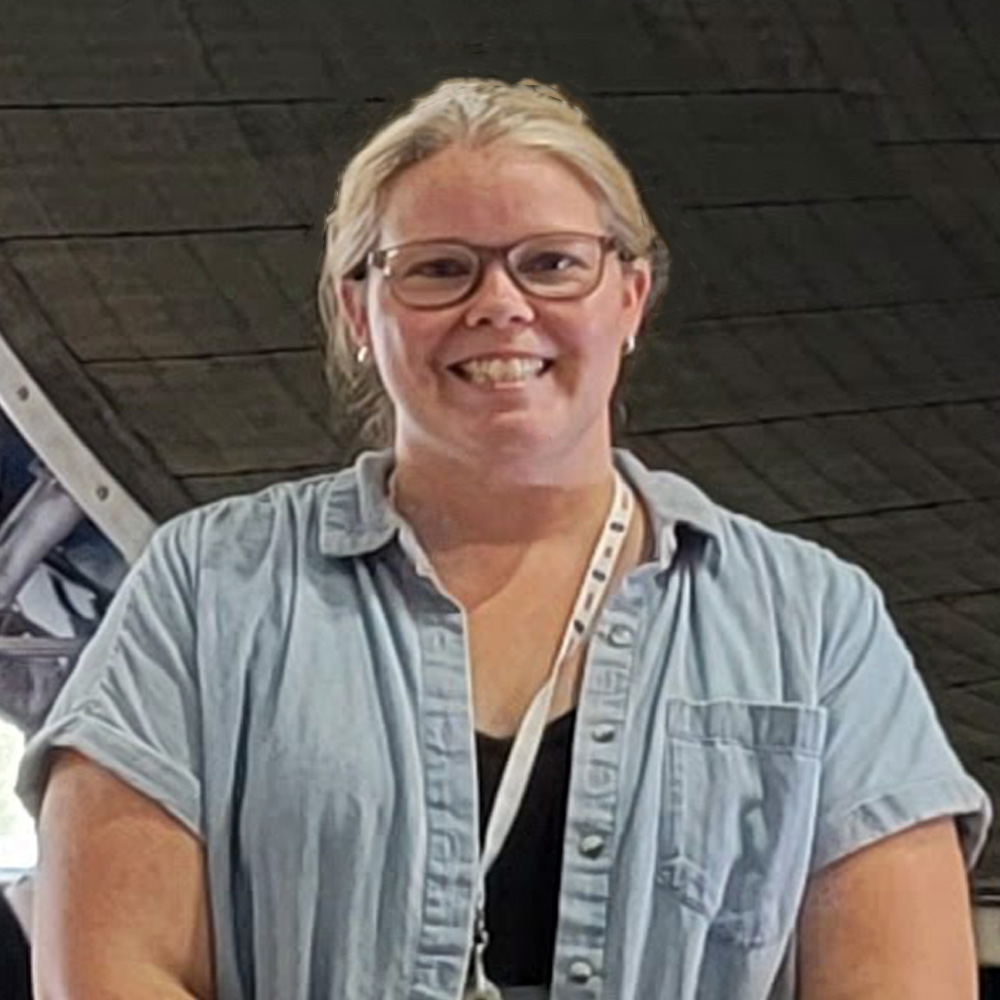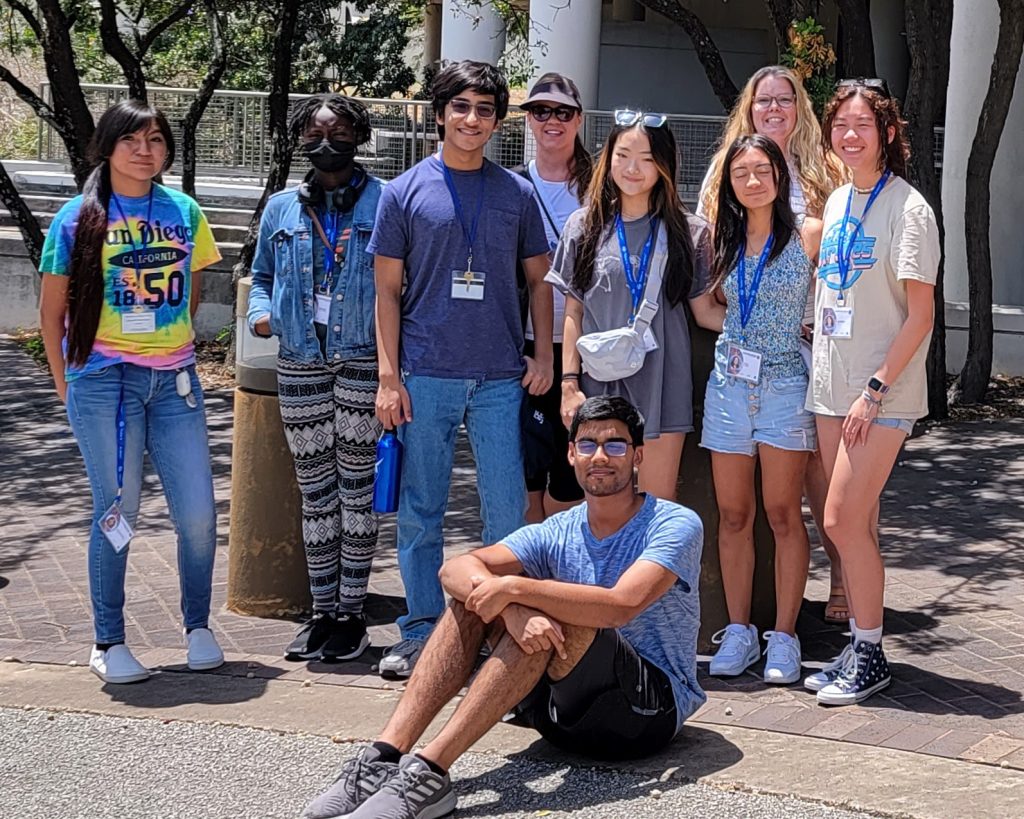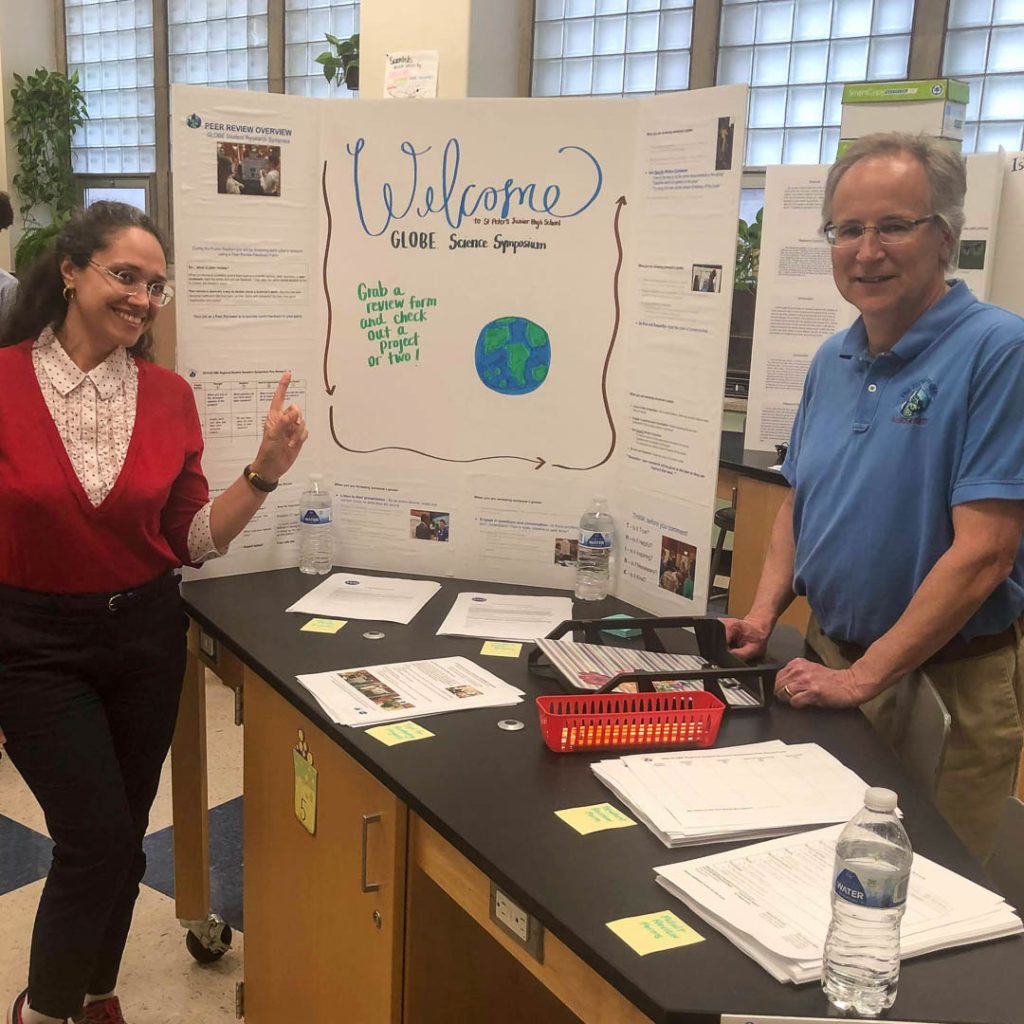
AUSTIN, Texas — St. Peter’s School science faculty member Janene Smith has been busy this summer, she recently finished a summer mentorship role with the NASA STEM Enhancement in Earth Science (SEES) program and served as a panelist with The GLOBE Project‘s Virtual Annual Meeting.
Smith’s role with SEES was to mentor a group of high school NASA interns. During their internship, the students learn about a topic and are tasked to pose a research question, which they will investigate and test using the scientific method. The group met virtually throughout the summer, then spent two weeks at the University of Texas at Austin to complete their project and presented their findings during the SEES Virtual Science Symposium.
Smith’s mentor group studied air quality using data from The GLOBE Project, another NASA-funded program. Students study aerosol data from air monitoring devices across the globe. As a mentor, she provided support as they completed their project research and experiments. The interns also took several day trips where they could experience science hands-on with a little fun thrown in. That included a trip to Houston to visit the NASA Johnson Space Center for a behind-the-scenes tour and presentations by former NASA astronauts, current NASA engineers, and scientists.

Smith also was recognized this summer for her work in the classroom with The GLOBE Project, serving as a panelist during The GLOBE Project’s Virtual Annual Meeting. As a panelist, she shared her experience teaching investigational science and completing group projects through the COVID-19 pandemic.
The GLOBE Project is an international program sponsored by NASA to bring a hands-on approach to the scientific method. The GLOBE project is a worldwide community of students, teachers, scientists, and citizens working together to understand better, sustain and improve Earth’s environment on a local, regional, and global scale.

Last school year, St. Peter’s introduced the Investigational Science elective for seventh and eighth-grade students. The STEM-focused class teaches students using tools from The GLOBE Project. In the class, students focus on becoming citizen scientists using the scientific method to observe and test scientific questions. The class culminates with student projects being reviewed and judged by scientists from the University of Toledo. In addition to air quality, students also study soil samples and observe weather conditions.
“We are excited to have Janene’s passion for science in the classroom,” said Laurie McKeon, St. Peter’s Head of School. “She brings real-world research to the classroom, and students see firsthand how our air changes daily. This hands-on approach to STEM will challenge our students and help them prepare for more rigorous science classes in high school and college.”
To support the student’s research, St. Peter’s School installed a weather monitoring station that allows students to track real-time and historical weather data. This data is also made available to scientists worldwide through The GLOBE Project’s website to assist their research. The weather station is also available online through WeatherUnderground.com and other weather websites.
This fall, St. Peters School will also bring an air quality monitor online to track pollutants in the downtown area. Plans include installing a high-definition camera so students can match weather data with sky conditions. The cost to install a 4K weather camera is $4,000, allowing students to match weather data with sky conditions.

